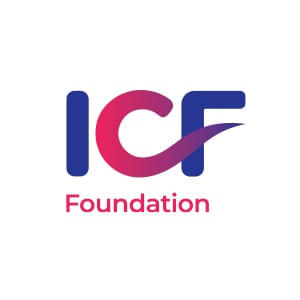Coaching for Social Impact: Climate Change
At the ICF Foundation, we are always excited to offer new opportunities in support of Coaching for Social Impact. We know that coaching has the power to transform mission-driven leaders and organizations. As coaches, we know that the right questions at the right time can change the conversation and make an impact. As we align our efforts to the United Nation’s (UN) 2030 Sustainable Development Goals, we were thrilled to share our vision at this year’s Climate Coach Alliance (CCA) 24-hour conversation., “What’s Mine To Do?” This event focused specifically on the UN’s Sustainable Development Goal 13: Climate Action.
CCA was established in 2019 to bring together coaches, coaching psychologists, coaching supervisors, facilitators and other leadership professionals to co–create a space to share resources, explore practices and hold dialogue in the face of the climate emergency. At CCA’s 24-hour conversation on March 4, 2021, the ICF Foundation hosted three sessions around climate, in the context of how we show up as coaches, the definition of our role and the intent for what‘s possible.
The coaching approach sessions posed questions to participating coaches such as:
- What is coaching’s greatest contribution to climate action?
- Where has coaching filled the gap between what is possible and impossible?
- Were there insertion points where small efforts deliver the most significant outcomes?
When discussing the gap between the perceived “possible” and “impossible,” participant Ahmad Brown shared that “Our coaching clients often come into sessions with certain expectations, but the gap between their expectations of the coaching and the open space for a meaningful conversation can allow them to dig deeper into things they need to address.
Morel Fourman, an ICF Foundation board trustee shared his observations of the global conversation regarding shared experiences of the ICF Foundation’s work and impact, but also called coaches to consider where the insertion points should be when working toward the impact coaching can have on climate change.
- Could it be in coaching leaders of the Climate Action Plans or organizations connected to the UN Climate Change Conference of the Parties (COP26)?
- What role can coaching play in turning around climate change?
Participant Lizzie Clark reflected on these questions and found them daunting at first, but then was able to reimagine the context and think of these ideas as possibilities, not only for her personally, but also in a community context. She said, “Are we being as imaginative as we could be? What does re–imagining the future look like? Is it a bigger gap than originally expected?”
The sessions also discussed the innovation of the coaching community in the space we create together. We asked things like, “What difference can we make with leaders with the scarce resources available to them?”
Another participant, Anna Fraser, shared “when I think about the gap in imagination versus the gap in making things reality, I am excited about helping people to break out of the way they are seeing things, to re–imagine and to see the energy that comes from this possibility … the ‘third way’ of viewing the possibilities.
As professional coaches think about the role they have in positive social impact, some have wondered if these conversations focus on the coaches’ agenda instead of the clients’. Recent updates to the ICF Code of Ethics and ICF Core Competencies reflect an opportunity to open the coaching space to engage our clients professionally, ethically and morally on how coaches can engage their clients in making a positive social impact.
The principles that guide this engagement stem first from the Ethical Practice Interpretive Statement 28, which reads: “I am aware of my and my client’s impact on society. I adhere to the philosophy of doing good versus avoiding bad.” The ICF Core Competencies also guide this engagement. Competency Four – Embodies a Coaching Mindset – is reflected in this space as a coach “remains aware of and open to the influence of context and culture on self and others.” Both of these statements help reinforce the idea that with more knowledge comes more compassion, and more compassion leads to more knowledge.
Participant Joan Chepkemoi Kurgat, ACC summarized it well in asking, “How do we position ourselves as coaches to be involved in the discussions, in a way to work with the organizations that are driving climate change? To collaborate on the change and help those leaders to open up their mind to what is needed to accelerate change?” These are the kinds of questions the ICF Foundation hopes to lead and inform.
To become more involved or to learn more about the global climate conversation with the Climate Coaching Alliance, visit their website, climatecoachingalliance.org.
Additionally, the ICF Foundation works to equip and connect coaches with the tools and resources needed for pro bono initiatives, as well as provide spaces for your chapter or network to engage in discussion. To become more involved with ICF Foundation’s mission to accelerate and amplify social impact through coaching, connect with us by visiting our website.


